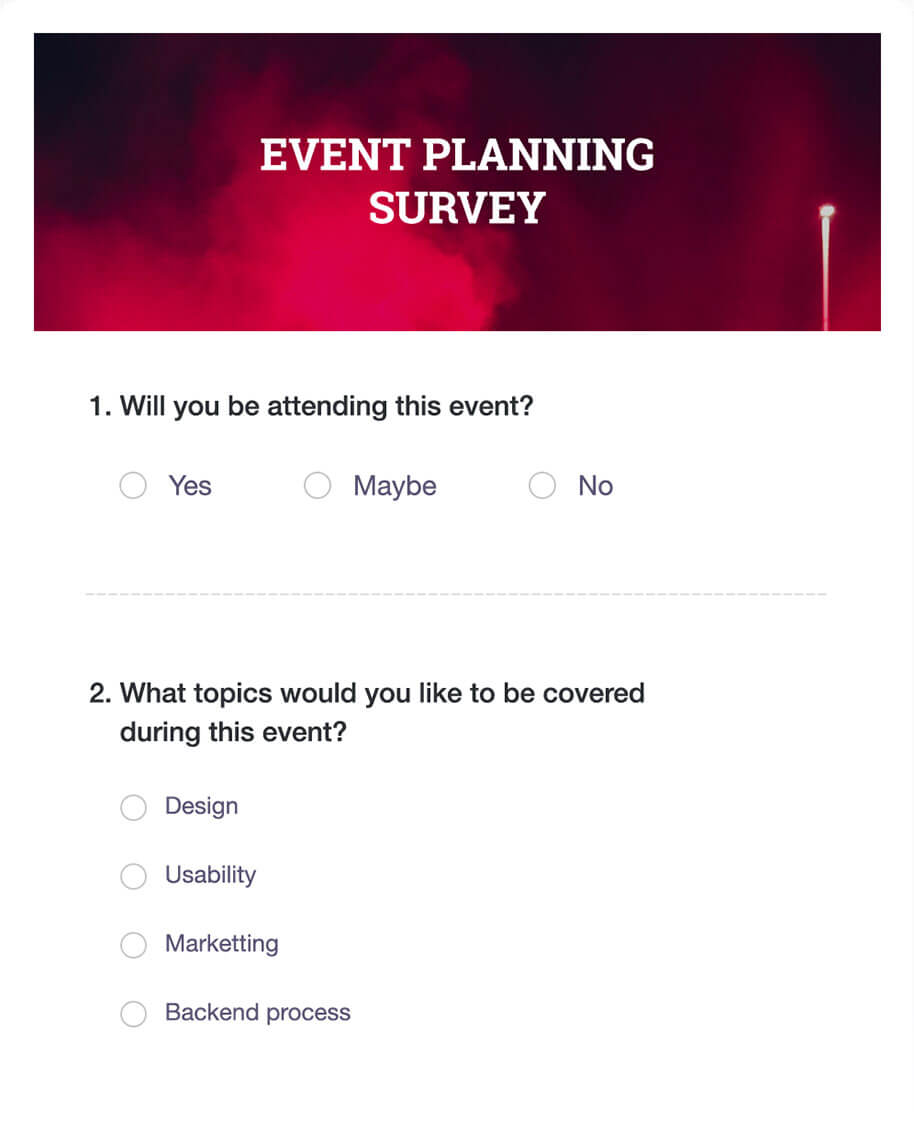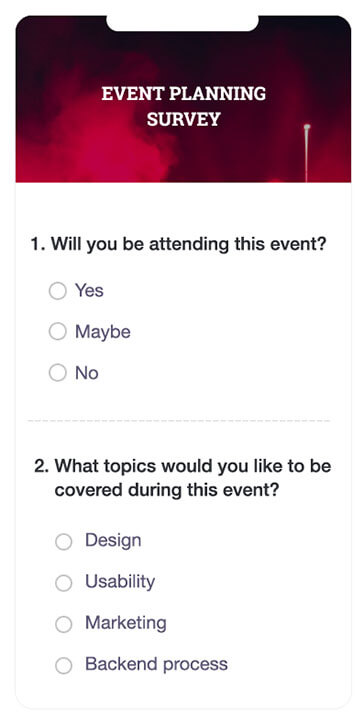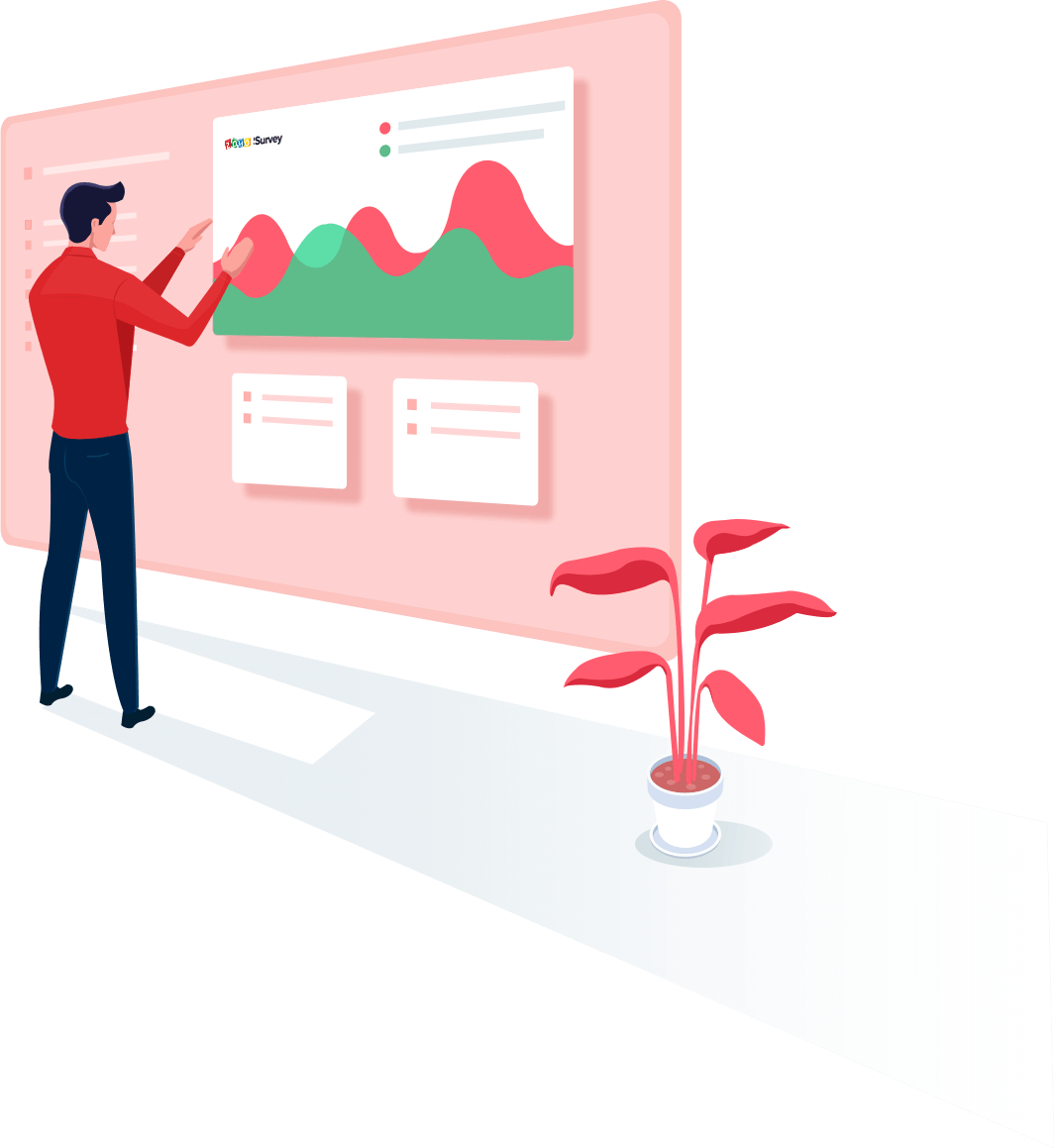Get, set, go!
Remember to clearly define the goal of the questionnaire in the beginning.
When you are clear on your objectives, it becomes easy for you to craft the appropriate questions, and it becomes even easier for the respondents to answer your questions.
Zoho Survey has a multiple question types and over 200 questionnaire templates that comes in handy when you are stuck thinking about the best way to ask your questions.


Effective Questions
An important factor in creating an effective questionnaire is that you should be clear on what to ask and what not to ask. Here are a few tips to get you going.

- #1 Always avoid the use of leading language, where the response can lead only to a specific answer.
- #2 Never confuse your respondents by combining two or more questions.
- #3 Include comments column to help the attendees to respond without any restrictions.
- #4 Try to avoid questions that would require lengthy answers.
- #5 Use likert and rating scales, which are people's favorites because they are easier to answer.
Online Questionnaires
An effective questionnaire captures the attention of the respondent, and prompts them to read through each and every question. Online questionnaires are the perfect platform that can uniquely and dynamically interact with your respondents, no matter how large their number.
Another major aspect of your questionnaire is finding the right audience. First, you'll need to calculate your ideal sample size. Next, you need to find your respondents who are very likely to be mostly online. But if you find yourself falling short, Zoho Survey can step in with Research Panels.
And finally, online questionnaires can also help with analysis. Responses are typically updated instantaneously and reports are real-time. Zoho Survey even provides options to export your responses and reports in multiple formats and to multiple productivity and analysis software.
As a final note, follow these 10 commandments of language.
We assure that none of your future questionnaires will ever be boring.
- Be clear and concise.
- Be specific and to-the-point.
- Avoid jargons and technical terminologies.
- Keep the language simple and straight forward.
- Use active voice.
- Use polite tone in your questions.
- Watch your grammar, spelling, and punctuation.
- Use the five Ws (what, who, where, which, and when) and one H (how).
- Avoid ambiguous and vague language.
- Keep your questions gender neutral.










